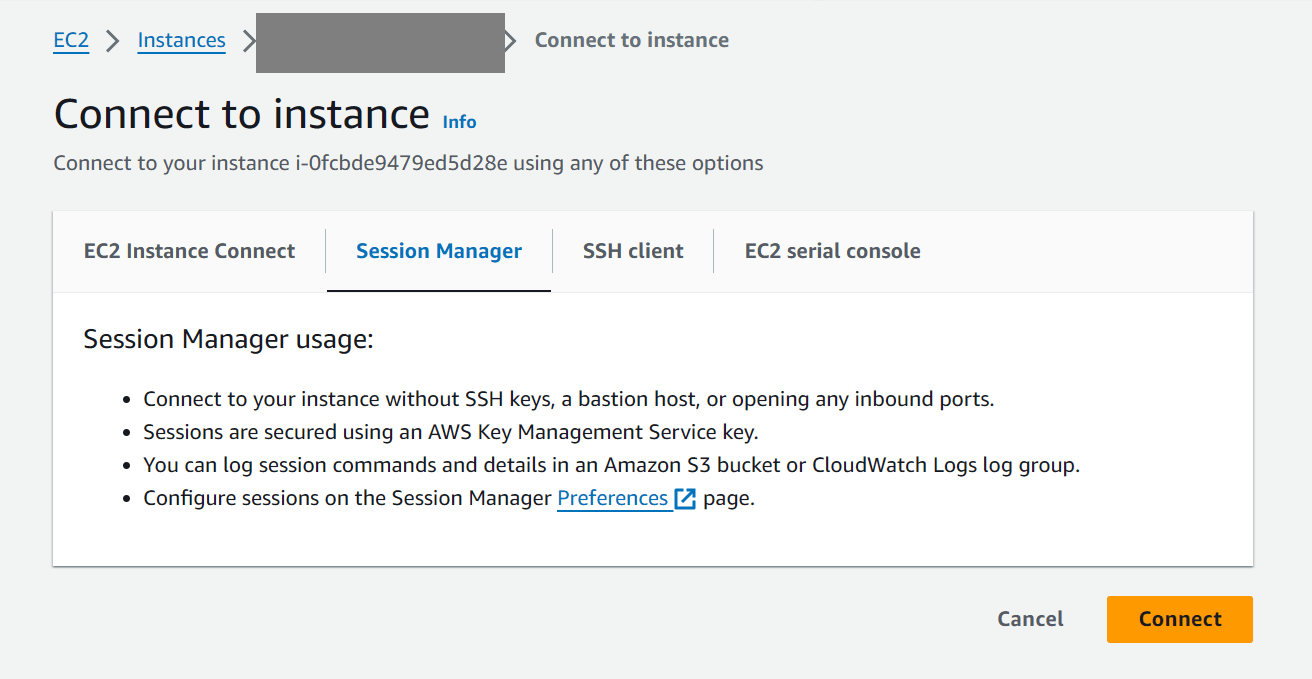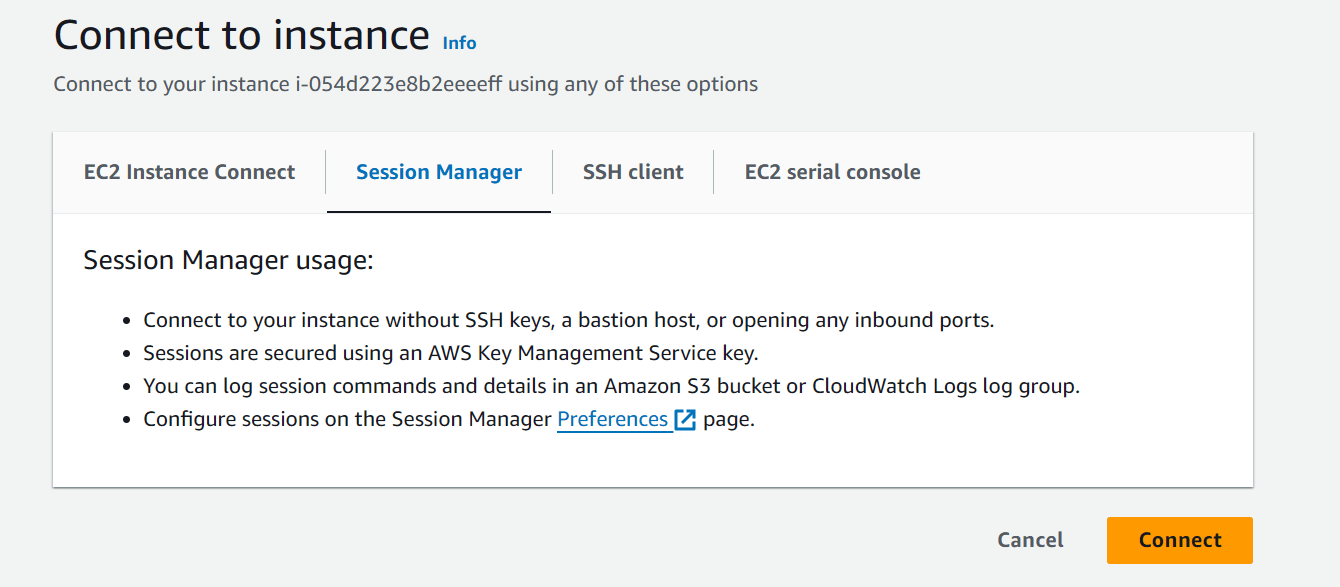複数AWSアカウントのNAT Gatewayを「VPC Peering+Proxy」で中央集約させる
はじめに
阿河です。
各AWSアカウントにNat Gatewayを配置し、外部通信を行えるようにするケースは多いと思います。
ただし複数AWSアカウントを管理していて、それぞれにNat Gatewayが必要な場合、トータルコストが大きくかかります。
そこで中央VPCを用意して、各アカウントからの通信を集約させる構成を組んでみました。
Proxyが冗長化されていない問題は別途解決は必要ですが、まずは基本構成として。
誰かの参考になれば幸いです。
前提
- AWSアカウント * 3
- Terraformの利用
目次
- 中央ネットワークを構築
- 子ネットワークを駆逐
- VPC Peering設定
- Proxy設定
- 疎通テスト
1. 中央ネットワークを構築
中央アカウントのディレクトリ構造は以下です。
% tree
.
├── compute.tf
├── network.tf
└── variables.tf
network.tf
resource "aws_vpc" "central_vpc" {
cidr_block = "${var.vpc_range}"
enable_dns_support = true
tags = {
"Name" = "${var.tenant}-central-vpc"
}
}
resource "aws_subnet" "sub_pub1" {
availability_zone ="ap-northeast-1a"
cidr_block ="${var.pub_sub1_range}"
tags = {
"Name" = "${var.tenant}-subnet-pub1"
}
vpc_id ="${aws_vpc.central_vpc.id}"
}
resource "aws_subnet" "sub_pub2" {
availability_zone ="ap-northeast-1c"
cidr_block ="${var.pub_sub2_range}"
tags = {
"Name" = "${var.tenant}-subnet-pub2"
}
vpc_id ="${aws_vpc.central_vpc.id}"
}
resource "aws_subnet" "sub_pri1" {
availability_zone ="ap-northeast-1a"
cidr_block ="${var.pri_sub1_range}"
tags = {
"Name" = "${var.tenant}-subnet-pri1"
}
vpc_id ="${aws_vpc.central_vpc.id}"
}
resource "aws_subnet" "sub_pri2" {
availability_zone ="ap-northeast-1c"
cidr_block ="${var.pri_sub2_range}"
tags = {
"Name" = "${var.tenant}-subnet-pri2"
}
vpc_id ="${aws_vpc.central_vpc.id}"
}
resource "aws_internet_gateway" "igw" {
tags = {
"Name" = "${var.tenant}-igw"
}
vpc_id ="${aws_vpc.central_vpc.id}"
}
resource "aws_eip" "eip" {
tags = {
"Name" = "${var.tenant}-eip"
}
}
resource "aws_nat_gateway" "ngw" {
tags = {
"Name" = "${var.tenant}-ngw"
}
subnet_id ="${aws_subnet.sub_pub1.id}"
allocation_id ="${aws_eip.eip.id}"
connectivity_type ="public"
}
resource "aws_route_table" "rtb_pub" {
tags = {
"Name" = "${var.tenant}-rtb-pub"
}
vpc_id ="${aws_vpc.central_vpc.id}"
route {
cidr_block ="0.0.0.0/0"
gateway_id ="${aws_internet_gateway.igw.id}"
}
}
resource "aws_route_table" "rtb_pri1" {
tags = {
"Name" = "rtb-pri1"
}
vpc_id ="${aws_vpc.central_vpc.id}"
route {
cidr_block ="0.0.0.0/0"
nat_gateway_id ="${aws_nat_gateway.ngw.id}"
}
/*
route {
cidr_block = "${var.peering_vpc_cidr1}"
vpc_peering_connection_id = "${aws_vpc_peering_connection.vpc_connection_from_central1.id}"
}
route {
cidr_block = "${var.peering_vpc_cidr2}"
vpc_peering_connection_id = "${aws_vpc_peering_connection.vpc_connection_from_central2.id}"
}
*/
}
resource "aws_route_table" "rtb_pri2" {
tags = {
"Name" = "${var.tenant}-rtb-pri2"
}
vpc_id ="${aws_vpc.central_vpc.id}"
route {
cidr_block ="0.0.0.0/0"
nat_gateway_id ="${aws_nat_gateway.ngw.id}"
}
/*
route {
cidr_block = "${var.peering_vpc_cidr1}"
vpc_peering_connection_id = "${aws_vpc_peering_connection.vpc_connection_from_central1.id}"
}
route {
cidr_block = "${var.peering_vpc_cidr2}"
vpc_peering_connection_id = "${aws_vpc_peering_connection.vpc_connection_from_central2.id}"
}
*/
}
resource "aws_route_table_association" "public_rt_1a" {
subnet_id = aws_subnet.sub_pub1.id
route_table_id = aws_route_table.rtb_pub.id
}
resource "aws_route_table_association" "public_rt_1c" {
subnet_id = aws_subnet.sub_pub2.id
route_table_id = aws_route_table.rtb_pub.id
}
resource "aws_route_table_association" "private_rt_1a" {
subnet_id = aws_subnet.sub_pri1.id
route_table_id = aws_route_table.rtb_pri1.id
}
resource "aws_route_table_association" "private_rt_1c" {
subnet_id = aws_subnet.sub_pri2.id
route_table_id = aws_route_table.rtb_pri2.id
}
resource "aws_vpc_endpoint" "vpc_ep_s3" {
tags = {
"Name" = "${var.tenant}-vpc-ep-s3"
}
vpc_id ="${aws_vpc.central_vpc.id}"
vpc_endpoint_type ="Gateway"
service_name ="com.amazonaws.ap-northeast-1.s3"
route_table_ids = [
"${aws_route_table.rtb_pri1.id}",
"${aws_route_table.rtb_pri2.id}"
]
}
/*
resource "aws_vpc_peering_connection" "vpc_connection_from_central1" {
peer_owner_id = "${var.accepter_account1}"
peer_vpc_id = "${var.peering_vpc_id1}"
vpc_id = "${aws_vpc.central_vpc.id}"
}
resource "aws_vpc_peering_connection" "vpc_connection_from_central2" {
peer_owner_id = "${var.accepter_account2}"
peer_vpc_id = "${var.peering_vpc_id2}"
vpc_id = "${aws_vpc.central_vpc.id}"
}
*/
compute.tf
data aws_ssm_parameter amzn2_ami {
name = "/aws/service/ami-amazon-linux-latest/amzn2-ami-hvm-x86_64-gp2"
}
data "aws_iam_policy_document" "proxy_assume_role" {
statement {
actions = ["sts:AssumeRole"]
principals {
type = "Service"
identifiers = ["ec2.amazonaws.com"]
}
}
}
resource "aws_iam_role" "proxy_role" {
name = "${var.tenant}-ec2-role"
assume_role_policy = data.aws_iam_policy_document.proxy_assume_role.json
}
data "aws_iam_policy" "ssm_instance_core" {
arn = "arn:aws:iam::aws:policy/AmazonSSMManagedInstanceCore"
}
resource "aws_iam_role_policy_attachment" "default" {
role = aws_iam_role.proxy_role.name
policy_arn = data.aws_iam_policy.ssm_instance_core.arn
}
resource "aws_iam_instance_profile" "proxy_profile" {
name = "InstanceProfile"
role = aws_iam_role.proxy_role.name
}
resource "aws_security_group" "proxy_sg" {
name = "${var.tenant}-ec2-sg"
vpc_id = aws_vpc.central_vpc.id
egress {
from_port = 0
to_port = 0
protocol = "-1"
cidr_blocks = ["0.0.0.0/0"]
}
tags = {
Name = "${var.tenant}-ec2-sg"
}
}
resource "aws_instance" "proxy" {
ami = data.aws_ssm_parameter.amzn2_ami.value
instance_type = "t3.micro"
iam_instance_profile = aws_iam_instance_profile.proxy_profile.name
subnet_id = aws_subnet.sub_pri1.id
vpc_security_group_ids = [aws_security_group.proxy_sg.id]
lifecycle {
ignore_changes = [
ami,
]
}
}
variables.tf
//環境の固有名
variable "tenant" {
default = "test"
}
//リージョン
variable "region" {
default = "ap-northeast-1"
}
//中央VPCのCIDR
variable "vpc_range" {
default = "10.1.0.0/16"
}
//中央パブリックサブネットのCIDR
variable "pub_sub1_range" {
default = "10.1.0.0/24"
}
//中央パブリックサブネットのCIDR
variable "pub_sub2_range" {
default = "10.1.1.0/24"
}
//中央プライベートサブネットのCIDR
variable "pri_sub1_range" {
default = "10.1.2.0/24"
}
//中央プライベートサブネットのCIDR
variable "pri_sub2_range" {
default = "10.1.3.0/24"
}
/*
//アカウントAのアカウントID
variable "accepter_account1" {
default = "xxxxxxxxxxxx"
}
//アカウントBのアカウントID
variable "accepter_account2" {
default = "xxxxxxxxxxxx"
}
//アカウントAのVPC ID
variable "peering_vpc_id1" {
default = "xxxxxxxxxxxx"
}
//アカウントAのVPC CIDR
variable "peering_vpc_cidr1" {
default = "10.2.0.0/16"
}
//アカウントBのVPC ID
variable "peering_vpc_id2" {
default = "xxxxxxxxxxxx"
}
//アカウントBのVPC CIDR
variable "peering_vpc_cidr2" {
default = "10.3.0.0/16"
}
*/
上記のデプロイにより、下記がデプロイされます。
variables.tfではVPCのCIDRなどを指定しているので、環境に合わせてデフォルト値を入れてください。
※ピアリングまわりは、一旦コメントアウトしています。
- 中央アカウントのVPCおよびネットワークリソース
- NAT Gateway
- EC2(Proxy)
2. 子ネットワークを構築
中央アカウントに繋げる子アカウント側にデプロイを行います。
ディレクトリ構造は以下です。
variables.tfの値は、それぞれ環境に合わせて変更下さい。
.
├── connection-test.tf
├── network.tf
└── variables.tf
network.tf
resource "aws_vpc" "account_vpc" {
cidr_block = "${var.vpc_range}"
enable_dns_support = true
enable_dns_hostnames = true
tags = {
"Name" = "${var.tenant}-vpc"
}
}
resource "aws_subnet" "sub_pub1" {
availability_zone ="ap-northeast-1a"
cidr_block ="${var.pub_sub1_range}"
tags = {
"Name" = "${var.tenant}-subnet-pub1"
}
vpc_id ="${aws_vpc.account_vpc.id}"
}
resource "aws_subnet" "sub_pub2" {
availability_zone ="ap-northeast-1c"
cidr_block ="${var.pub_sub2_range}"
tags = {
"Name" = "${var.tenant}-subnet-pub2"
}
vpc_id ="${aws_vpc.account_vpc.id}"
}
resource "aws_subnet" "sub_pri1" {
availability_zone ="ap-northeast-1a"
cidr_block ="${var.pri_sub1_range}"
tags = {
"Name" = "${var.tenant}-subnet-pri1"
}
vpc_id ="${aws_vpc.account_vpc.id}"
}
resource "aws_subnet" "sub_pri2" {
availability_zone ="ap-northeast-1c"
cidr_block ="${var.pri_sub2_range}"
tags = {
"Name" = "${var.tenant}-subnet-pri2"
}
vpc_id ="${aws_vpc.account_vpc.id}"
}
resource "aws_internet_gateway" "igw" {
tags = {
"Name" = "${var.tenant}-igw"
}
vpc_id ="${aws_vpc.account_vpc.id}"
}
resource "aws_route_table" "rtb_pub" {
tags = {
"Name" = "${var.tenant}-rtb-pub"
}
vpc_id ="${aws_vpc.account_vpc.id}"
route {
cidr_block ="0.0.0.0/0"
gateway_id ="${aws_internet_gateway.igw.id}"
}
}
resource "aws_route_table" "rtb_pri1" {
tags = {
"Name" = "${var.tenant}-rtb-pri1"
}
vpc_id ="${aws_vpc.account_vpc.id}"
/*
route {
cidr_block = "${var.peering_vpc_cidr}"
vpc_peering_connection_id = "${var.vpc_connection_id}"
}
*/
}
resource "aws_route_table" "rtb_pri2" {
tags = {
"Name" = "${var.tenant}-rtb-pri2"
}
vpc_id ="${aws_vpc.account_vpc.id}"
/*
route {
cidr_block = "${var.peering_vpc_cidr}"
vpc_peering_connection_id = "${var.vpc_connection_id}"
}
*/
}
resource "aws_route_table_association" "public_rt_1a" {
subnet_id = aws_subnet.sub_pub1.id
route_table_id = aws_route_table.rtb_pub.id
}
resource "aws_route_table_association" "public_rt_1c" {
subnet_id = aws_subnet.sub_pub2.id
route_table_id = aws_route_table.rtb_pub.id
}
resource "aws_route_table_association" "private_rt_1a" {
subnet_id = aws_subnet.sub_pri1.id
route_table_id = aws_route_table.rtb_pri1.id
}
resource "aws_route_table_association" "private_rt_1c" {
subnet_id = aws_subnet.sub_pri2.id
route_table_id = aws_route_table.rtb_pri2.id
}
resource "aws_vpc_endpoint" "vpc_ep_s3" {
tags = {
"Name" = "${var.tenant}-vpc-ep-s3"
}
vpc_id ="${aws_vpc.account_vpc.id}"
vpc_endpoint_type ="Gateway"
service_name ="com.amazonaws.ap-northeast-1.s3"
route_table_ids = [
"${aws_route_table.rtb_pri1.id}",
"${aws_route_table.rtb_pri2.id}"
]
}
connection-test.tf
resource "aws_vpc_endpoint" "ssm" {
vpc_id = aws_vpc.account_vpc.id
service_name = "com.amazonaws.${var.region}.ssm"
vpc_endpoint_type = "Interface"
security_group_ids = [aws_security_group.vpc_endpoint_sg.id]
subnet_ids = [aws_subnet.sub_pri1.id]
private_dns_enabled = true
}
resource "aws_vpc_endpoint" "ec2messages" {
vpc_id = aws_vpc.account_vpc.id
service_name = "com.amazonaws.${var.region}.ec2messages"
vpc_endpoint_type = "Interface"
security_group_ids = [aws_security_group.vpc_endpoint_sg.id]
subnet_ids = [aws_subnet.sub_pri1.id]
private_dns_enabled = true
}
resource "aws_vpc_endpoint" "ssmmessages" {
vpc_id = aws_vpc.account_vpc.id
service_name = "com.amazonaws.${var.region}.ssmmessages"
vpc_endpoint_type = "Interface"
security_group_ids = [aws_security_group.vpc_endpoint_sg.id]
subnet_ids = [aws_subnet.sub_pri1.id]
private_dns_enabled = true
}
resource "aws_security_group" "vpc_endpoint_sg" {
name = "${var.tenant}-vpc-endpoint-sg"
vpc_id = aws_vpc.account_vpc.id
ingress {
from_port = 443
to_port = 443
protocol = "tcp"
cidr_blocks = ["0.0.0.0/0"]
}
egress {
from_port = 0
to_port = 0
protocol = "-1"
cidr_blocks = ["0.0.0.0/0"]
}
}
resource "aws_security_group" "main" {
name = "${var.tenant}-sg"
vpc_id = aws_vpc.account_vpc.id
ingress {
from_port = 443
to_port = 443
protocol = "tcp"
cidr_blocks = ["0.0.0.0/0"]
}
ingress {
from_port = 80
to_port = 80
protocol = "tcp"
cidr_blocks = ["0.0.0.0/0"]
}
ingress {
from_port = 22
to_port = 22
protocol = "tcp"
cidr_blocks = ["0.0.0.0/0"]
}
egress {
from_port = 0
to_port = 0
protocol = "-1"
cidr_blocks = ["0.0.0.0/0"]
}
}
data "aws_ami" "latest_amazon_linux2" {
most_recent = true
owners = ["amazon"]
filter {
name = "name"
values = ["amzn2-ami-hvm-*-x86_64-gp2"]
}
}
resource "aws_instance" "main" {
instance_type = "t3.micro"
ami = data.aws_ami.latest_amazon_linux2.id
subnet_id = aws_subnet.sub_pri1.id
vpc_security_group_ids = [aws_security_group.main.id]
iam_instance_profile = aws_iam_instance_profile.test_profile.name
root_block_device {
volume_size = 8
volume_type = "gp3"
iops = 3000
throughput = 125
}
lifecycle {
ignore_changes = [
ami,
]
}
}
resource "aws_iam_instance_profile" "test_profile" {
name = "${var.tenant}-ssm"
role = aws_iam_role.ssm_role.name
}
resource "aws_iam_role" "ssm_role" {
name = "${var.tenant}-ssm"
assume_role_policy = data.aws_iam_policy_document.assume_role.json
}
data "aws_iam_policy_document" "assume_role" {
statement {
actions = ["sts:AssumeRole"]
principals {
type = "Service"
identifiers = ["ec2.amazonaws.com"]
}
}
}
resource "aws_iam_role_policy_attachment" "ssm_managed_instance_core" {
role = aws_iam_role.ssm_role.name
policy_arn = "arn:aws:iam::aws:policy/AmazonSSMManagedInstanceCore"
}
variables.tf
variable "tenant" {
default = "accounta"
}
variable "region" {
default = "ap-northeast-1"
}
variable "vpc_range" {
default = "10.5.0.0/16"
}
variable "pub_sub1_range" {
default = "10.5.0.0/24"
}
variable "pub_sub2_range" {
default = "10.5.1.0/24"
}
variable "pri_sub1_range" {
default = "10.5.2.0/24"
}
variable "pri_sub2_range" {
default = "10.5.3.0/24"
}
/*
variable "peering_vpc_cidr" {
default = "10.1.0.0/16"
}
variable "vpc_connection_id" {
default = "xxxxxxxxxxxxxxxx"
}
*/
上記のデプロイにより、下記がデプロイされます。
variables.tfではVPCのCIDRなどを指定しているので、環境に合わせてデフォルト値を入れてください。
※ピアリングまわりは、一旦コメントアウトしています。
- 各アカウントのVPCおよびネットワークリソース
- EC2(疎通確認要)
※中央アカウント側のNAT Gatewayを経由してインターネットへ出るため、子アカウント側にはNAT Gatewayは配置しません。
今回の検証では2AWSアカウントにデプロイを行っています。
CIDRは中央アカウント/各アカウント間に被らないようにしてください。
3. VPC Peering設定
次にVPC Peeringの設定を行います。
//中央アカウント
中央アカウントの各TFファイルについて、下記箇所のコメントアウトを外し、必要な設定を行います。
variables.tf
//アカウントAのアカウントID
variable "accepter_account1" {
default = "xxxxxxxxxxxx" //子アカウント1のAWS アカウントIDを入力
}
//アカウントBのアカウントID
variable "accepter_account2" {
default = "xxxxxxxxxxxx" //子アカウント2のAWS アカウントIDを入力
}
//アカウントAのVPC ID
variable "peering_vpc_id1" {
default = "xxxxxxxxxxxx" //子アカウント1のVPC IDを入力
}
//アカウントAのVPC CIDR
variable "peering_vpc_cidr1" {
default = "10.2.0.0/16" //子アカウント1のVPC CIDRを入力
}
//アカウントBのVPC ID
variable "peering_vpc_id2" {
default = "xxxxxxxxxxxx" //子アカウント2のVPC IDを入力
}
//アカウントBのVPC CIDR
variable "peering_vpc_cidr2" {
default = "10.3.0.0/16" //子アカウント2のVPC CIDRを入力
}
network.tf
resource "aws_route_table" "rtb_pri1" {
tags = {
"Name" = "rtb-pri1"
}
vpc_id ="${aws_vpc.central_vpc.id}"
route {
cidr_block ="0.0.0.0/0"
nat_gateway_id ="${aws_nat_gateway.ngw.id}"
}
route {
cidr_block = "${var.peering_vpc_cidr1}"
vpc_peering_connection_id = "${aws_vpc_peering_connection.vpc_connection_from_central1.id}"
}
route {
cidr_block = "${var.peering_vpc_cidr2}"
vpc_peering_connection_id = "${aws_vpc_peering_connection.vpc_connection_from_central2.id}"
}
}
resource "aws_route_table" "rtb_pri2" {
tags = {
"Name" = "${var.tenant}-rtb-pri2"
}
vpc_id ="${aws_vpc.central_vpc.id}"
route {
cidr_block ="0.0.0.0/0"
nat_gateway_id ="${aws_nat_gateway.ngw.id}"
}
route {
cidr_block = "${var.peering_vpc_cidr1}"
vpc_peering_connection_id = "${aws_vpc_peering_connection.vpc_connection_from_central1.id}"
}
route {
cidr_block = "${var.peering_vpc_cidr2}"
vpc_peering_connection_id = "${aws_vpc_peering_connection.vpc_connection_from_central2.id}"
}
}
resource "aws_vpc_peering_connection" "vpc_connection_from_central1" {
peer_vpc_id = "${var.peering_vpc_id1}"
vpc_id = "${aws_vpc.central_vpc.id}"
auto_accept = true
}
resource "aws_vpc_peering_connection" "vpc_connection_from_central2" {
peer_vpc_id = "${var.peering_vpc_id2}"
vpc_id = "${aws_vpc.central_vpc.id}"
auto_accept = true
}
上記デプロイ(変更)の結果、VPCページの「Peering connections」に設定が現れます。

次に子アカウント側の「Peering connections」ページに移り、「Accept request」を行います。

中央アカウント-2アカウント間のピアリングが、Activeになることを確認します。
//子アカウント側
variables.tf
variable "peering_vpc_cidr" {
default = "10.1.0.0/16" //中央アカウントのVPC CIDR
}
variable "vpc_connection_id" {
default = "xxxxxxxxxxxxxxxx" //Peering Connection ID
}
network.tf
resource "aws_route_table" "rtb_pri1" {
tags = {
"Name" = "${var.tenant}-rtb-pri1"
}
vpc_id ="${aws_vpc.account_vpc.id}"
route {
cidr_block = "${var.peering_vpc_cidr}"
vpc_peering_connection_id = "${var.vpc_connection_id}"
}
}
resource "aws_route_table" "rtb_pri2" {
tags = {
"Name" = "${var.tenant}-rtb-pri2"
}
vpc_id ="${aws_vpc.account_vpc.id}"
route {
cidr_block = "${var.peering_vpc_cidr}"
vpc_peering_connection_id = "${var.vpc_connection_id}"
}
}
- VPCピアリング設定と、ルート設定が完了しました。
4. Proxy設定
今のままでは子アカウント~中央アカウントのNat Gatewayを経由した外部通信ができないので、中央アカウントのEC2にSquidの設定を入れます。

中央アカウントのAWSマネジメントコンソールにログイン。
Proxyサーバに、Session Managerで入ります。
//Squidのインストール & confファイル作成
$ sudo yum update -y
$ sudo yum install squid -y
$ sudo touch /etc/squid/squid.conf
// etc/squid/squid.confを編集
acl localnet src 10.2.0.0/16 //子アカウント側に合わせる
acl localnet src 10.3.0.0/16 //子アカウント側に合わせる
acl Safe_ports port 80 # http
acl Safe_ports port 443 # https
http_access deny !Safe_ports
acl SSL_ports port 443 # https
acl CONNECT method CONNECT
http_access deny CONNECT !SSL_ports
# ホワイトリストを指定
acl whitelist dstdomain "/etc/squid/whitelist"
http_access deny !localnet
http_access allow whitelist
http_access deny all
http_port 3128
no_cache deny all
coredump_dir /var/spool/squid
logformat squid %tl %>a %Ss/%03>Hs %<st %rm %ru %[un %Sh/%<a %mt
visible_hostname unknown
forwarded_for off
request_header_access User-Agent deny all
request_header_access Referer deny all
request_header_access X-Forwarded-For deny all
request_header_access Via deny all
request_header_access Cache-Control deny all
設定ファイルを更新します。
$ sudo systemctl start squid
$ sudo systemctl enable squid
Squidの起動停止を行います。
$ sudo touch /etc/squid/whitelist
次にホワイトリストの設定を行います。
//etc/squid/whitelist
.google.com
テストとしてgoogle.comを指定しました。
$ sudo chmod 644 /etc/squid/whitelist
$ sudo chown squid:squid /etc/squid/whitelist
$ sudo systemctl reload squid
リロードします。

最後にEC2(Proxy)のセキュリティグループを、環境に合わせて設定してください。
5. 疎通テスト
子アカウント1のEC2に対して、Session Managerにログインします。

ping ※プロキシサーバのIPアドレス
まず中央アカウントのProxyサーバに疎通確認をします。
EC2(Proxy)のプライベートIPアドレスを指定してください。
疎通ができることを確認します。
疎通ができない場合は、Proxyのセキュリティグループ設定等を御確認ください。
$ export http_proxy=http://10.1.2.49:3128 //プロキシサーバのipアドレスを入力
$ export https_proxy=http://10.1.2.49:3128 //プロキシサーバのipアドレスを入力
$ curl -I https://www.google.com //ホワイトリストで許可
HTTP/1.1 200 Connection established
$ curl -I https://www.amazon.com //ホワイトリストに記載なし
HTTP/1.1 403 Forbidden
- google.comへのアクセスができること
- それ以外は拒否されること
上記を確認します。
想定どおりの挙動となりました。
子アカウント2についても同様に疎通テストを行い、疎通できることを確認してください。
おわりに
別途Proxyサーバの冗長化については、追って記事を書こうと思います。
誰かの参考になれば幸いです。
御覧いただきありがとうございました。
Discussion